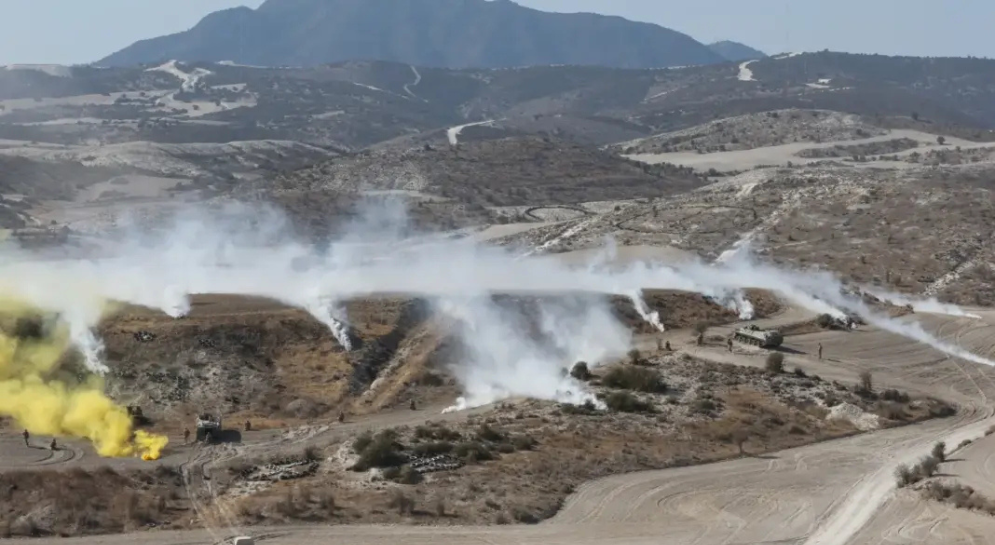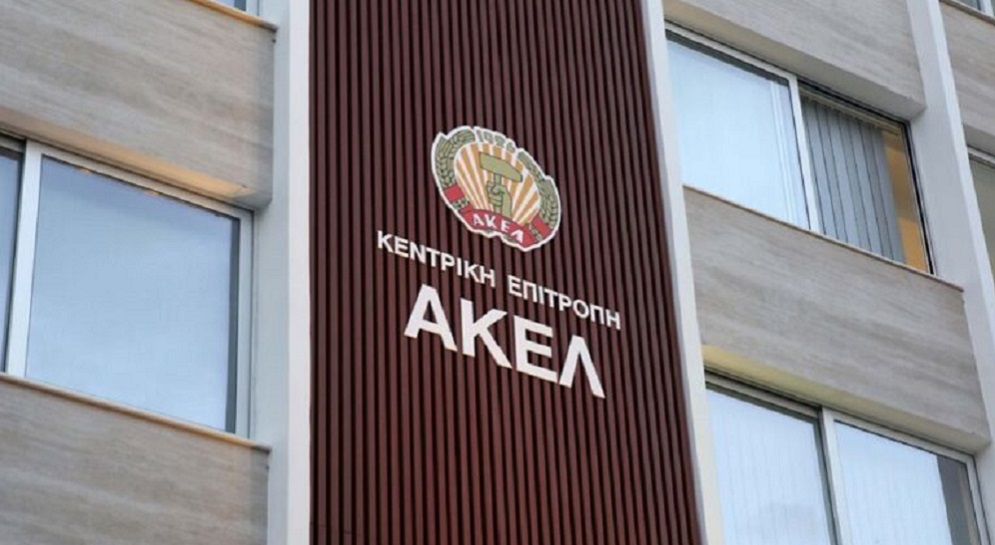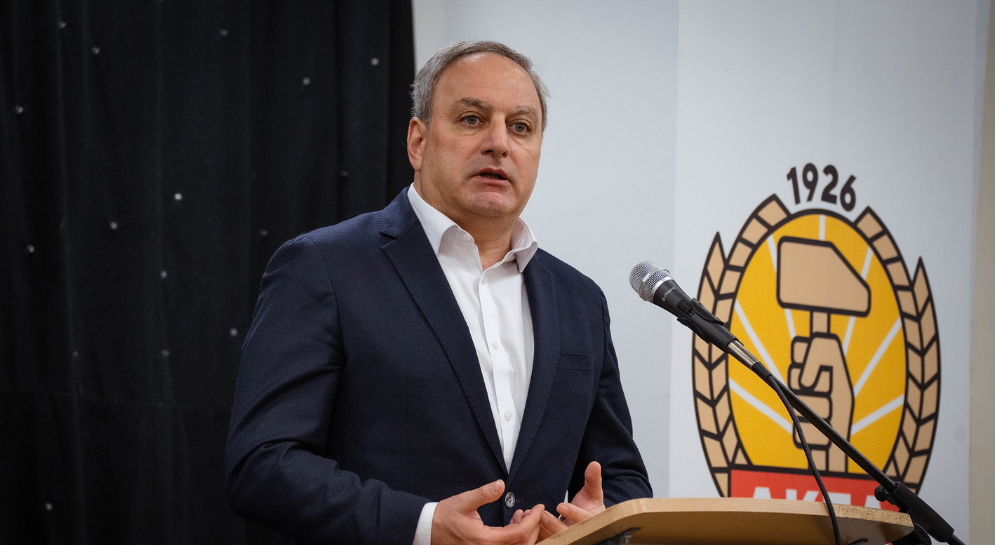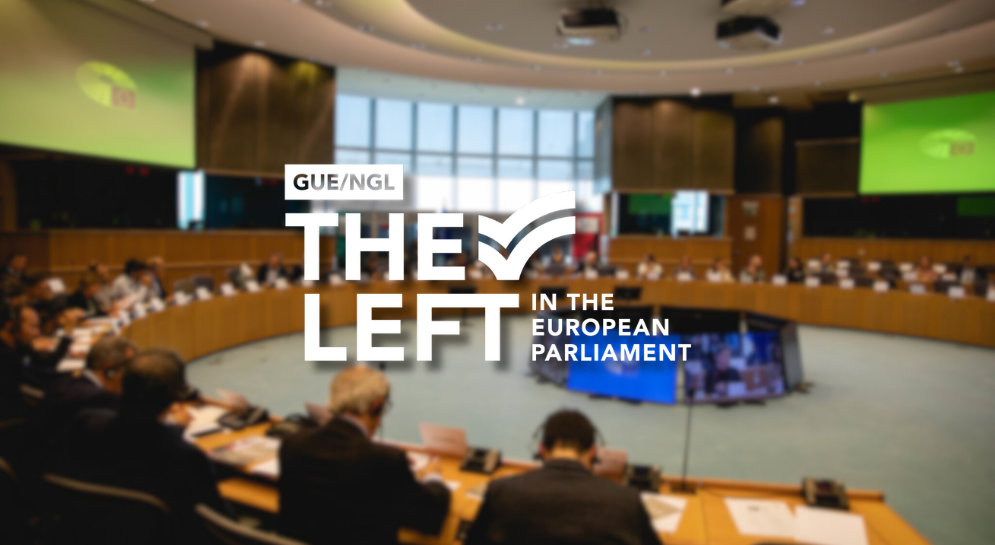
Speech by the General Secretary of AKEL Stefanos Stefanou at plenary of the House of Representatives on the Black Anniversaries of the coup and invasion
15 July 2022, House of Representatives, Nicosia
Madam President,
Ladies and Gentlemen,
At the sound of the siren this morning, which sounds every year to commemorate the time of the beginning of the treacherous coup of the Greek Junta and EOKA B against Makarios, nightmarish memories come back with intensity in our minds.
As a child back then, at the age of nine and a bit, I experienced the developments in a very intense way. I experienced them through the conversations of my elders, but also through my own personal experiences.
There are two incidents that are very vividly imprinted in my mind:
The first, when the EOKA B coupists came to our home and arrested my father. And later, when they came again and went through the house looking for guns. They were the ones who stole the Kalashnikovs and sold them to others…
The second, when I watched the Turkish planes flying over my village Gerolakkos and then dropping the paratroopers/invaders in the Kioneli – Aghirta region without a single shot having been fired. It was the black morning of 20 July 1974.
These incidents dominate my memory and will haunt me until my last breath. Along with the memories of our family being bundled into a truck leaving our village in a hurry to seek a safer place. We temporarily stayed in Orunda, the first stop on our journey which after two years ended in the village of Deftera, with the expectation that we would soon return to our village.
I remember the slogan that stood out in the mass rallies of the time: “All refugees to their homes”. Forty-eight years later, almost half a century later, no refugee has returned home and the Cyprus problem is at its worst point, one step away from permanent partition, with the Greek Cypriot side considered by the international community as equally responsible for the prolonged stalemate on the Cyprus problem.
Even today, certain forces and circles are under the illusion that time is working in our favour at the same time as Turkey is exploiting it to bring permanent partition closer. Some still believe that we should wait instead of taking the initiative.
In politics, however, what is decisive is the end result, not the intention. History is written by actions, not by “what if…”. This axiom of politics has frequently been overlooked. We have many times surrendered to populism, nationalism and patriotism, with the result that we have taken the wrong course or failed to make proper use of historical possibilities and opportunities that have been presented before us.
In many cases we have opted for convenient illusions rather than for difficult realism, a realism which needless to say must be based on principles. Empty slogans to rationality were preferred. We talk about Turkey’s responsibilities and crimes, which unquestionably exist and are grave, but we ignore our own responsibilities and crimes committed some Greek Cypriots – yes, crimes committed by Greek Cypriots too – which have been hidden in blank pages of our history.
I know that some people on hearing this statement will again start saying the familiar narrative. That by doing so we are whitewashing Turkey’s crimes and exonerating it of its illegal crimes against Cyprus and our people. I am the last person who would accept the offsetting and equating the mass crimes committed by a state, Turkey – and above all its invasion of Cyprus – with what far-right chauvinists, Greek Cypriots and Turkish Cypriots – have done against our compatriots. Of course it is not the same!
But at some point, as political leaders, we must find the courage to speak out about the mistakes committed by the Greek Cypriot side and the crimes of Greek Cypriot far-right fanatics in 1963-64 and 1974. This is our duty towards History itself, if we really want to learn from the past to ensure a peaceful future for our children. After all, we lose international credibility rather than gain it by not making assumptions about irrefutable facts that the international community knows all too well anyway.
The history of the Republic of Cyprus is a journey that has often been written as a result of the supremacy of what is desirable over what is possible.
As was the case, for example, in the first very difficult years of Cyprus independence when, instead of supporting the newly-founded independent bicommunal state, it was undermined by the illusion that we would achieve Enosis (union with Greece). Thus, Turkey and the Turkish Cypriot leadership found inadvertent allies in promoting partition.
Or as was the case in the period following the inter-communal clashes of 1963-64 which was seen as an opportunity to build Enosis from the bottom up.
Even when the policy of the desirable was officially abandoned very little changed in political rhetoric and practice. The goal of Enosis had not in fact been abandoned, the theory of the “National centre” continued to determine political developments, even under the Junta in Greece. The coup was celebrated as a “revolution for national salvation” in the right wing “national-minded” local clubs/associations, while the right-wing party sent letters of congratulations on every anniversary of the 21 April 1967 military coup in Greece. At the same time, far-right organisations appeared on the scene – first the National Front and then Grivas’ EOKA B – which attempted to impose Enosis by force. But instead of Enosis, their treacherous actions brought the invading Turkish army and subsequent occupation to Cyprus.
We are not ignoring in any way the external conspiracies, predominantly NATO conspiracies, which were of course facilitated immeasurably by the illegal actions of the extreme right-wing in both communities.
AKEL will never accept that victims and perpetrators should be lumped together, that the coupists should be lumped together with the defenders of democracy. AKEL will never accept the pardoning of the grave responsibilities and the treason committed against our people by the adoption of ahistorical narratives about “violence and counter-violence”. Nor will AKEL ever accept the falsification of history by the honoring of people who bear the gravest responsibility for the Turkish invasion. I am talking about Grivas. And let it not be said here again that Grivas died before the coup, because the plans for a coup d’état bear his signature.
Ladies and gentlemen,
We all say that history teaches us to chart our course for the future. Yes, history can teach, but only when it is written and interpreted correctly, comprehensively and objectively. Only then does it become a correct signpost. Against the backdrop of the painful and dangerous developments that are unfolding in our country, we must certainly look back at our history to decide how to move forward. First and foremost, we must definitively and irrevocably abandon illusions. We must abandon populism and, with a great sense of responsibility, reflect on the uncharted waters we are entering with partition becoming consolidated.
We usually argue about who is most responsible and who is least responsible for Cyprus getting this far. I have a clear opinion, but I will not dwell on the division of responsibility. And I will not do so, because I want to focus our attention on what we need to do from now on to prevent negative and disastrous developments.
As political leaders, we must understand the great dangers of partition. The dangers of the continued presence of the Turkish occupation troops. Of the transformation of the ceasefire line into a hard border with Turkey. The ‘Turkification’ of the occupied territories and the disappearance of the Turkish Cypriot community, which is our natural ally in the struggle for liberation and reunification.
The criticality of our times is not only determined by Turkey’s aggression and the provocation of new fait accompli in the Exclusive Economic Zone of the Republic of Cyprus and Famagusta.
It is determined by the continuation of the stalemate on the Cyprus problem which is preventing us from exercising our sovereign rights.
The criticality of the moment is also determined by the fact that the international community, the United Nations itself, is not only keeping its distance in the face of Turkey’s provocative stand, but no longer refers to the agreed basis and framework for a solution. If the stalemate doesn’t change, even the international community will compromise with the idea of discussing partition. This is exactly what Turkey is seeking.
If in certain people’s minds partition means that we alone as Greek Cypriots administer the Republic of Cyprus – even with half of its territory – I will say that this is another dangerous illusion. Partition will lead to an all-Turkish state in the occupied north and a mixed state in the free areas.
We have an obligation to abandon the passive stance and act now. What we must do is clear to AKEL:
One: In the face of Turkey and the Turkish Cypriot leadership’s effort to promote a two state solution, we must remain consistent to the agreed basis for a solution of bizonal, bicommunal federation with political equality as described by the United Nations. The dilemma is not federation or something else. The something else is partition.
Second: only by resuming the negotiations from where they were suspended at Crans Montana on the basis of the Guterres Framework and by preserving the convergences that have been recorded so far, can Turkey’s plans to deviate from the agreed basis be averted. Anything else will lead us to the permanent partition of Cyprus.
Third: concrete initiatives must be taken to activate the international community and create momentum for the resumption of the negotiations. AKEL, always a responsible and patriotic party with specific positions and proposals, has submitted a specific proposal since December 2020 on how we can make use of the energy factor to release dynamics, as the UN Secretary General himself has repeatedly asked us to do after the Crans Montana collapse.
Madam President, Ladies and gentlemen,
I make no secret of the fact that the question that haunts me, as a citizen of this country that grew up with the trauma of that summer of 1974, is whether we have become the least bit wiser. Whether we have learned from our suffering.
“What we lived is lost, shattered in the rotting esophagus of time,” wrote the poet Tasos Livaditis.
Let us remember this. Let us remember it because we have an obligation, not only to preserve memory, but to ensure lasting peace and security for future generations. We have an obligation to give this wonderful country the opportunity to win the battle with the future.
Honor and glory to the heroes of freedom and democracy in our homeland.
 ˈplenərē
ˈplenərē
plenary




